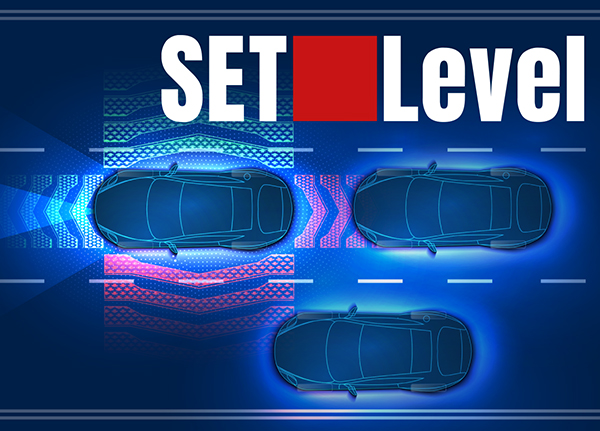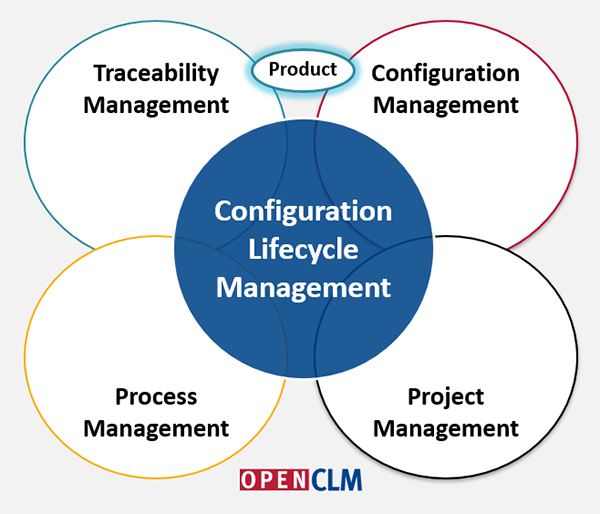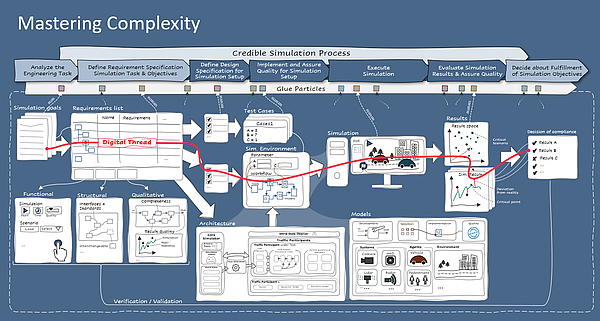
|
Advances in the simulation of highly automated-driving functionsBy Martin Holland A closing event held a few weeks ago at BMW's Research and Innovation Center (FIZ) marked the successful conclusion of the publicly funded SET Level project. Key results from the perspective of PROSTEP, which was actively involved in the project, are the definition of an integrative simulation architecture and a reliable simulation process that can be documented in a traceable way with the help of our demonstrator TRACY. 
SET Level is one of two projects on the validation and verification of autonomous driving functions in which PROSTEP has actively participated; its sister project, VVM, will be brought to a close next year. Our job in both projects was and is to provide the project partners with support when it comes to defining requirements and implementing the project results in industrial applications. Based on our open, standards-based software, we have also developed the demonstrator for a traceability solution that it makes possible to baseline simulations in heterogeneous IT landscapes. In total, more than 30 of our employees have participated in the SET Level project over a period of three years. We took advantage of the collaboration with other project partners to expand our consulting expertise in systems engineering and the simulation of autonomous driving functions and raise PROSTEP's profile as a provider of know-how in these areas. This made it possible for us to secure important consulting projects in the automotive industry at Porsche and Bosch and at the shipbuilder Wärtsilä. The SET Level project owes its existence to the realization that advanced driver assistance systems (ADAS) can no longer be validated by physical testing alone and must also be simulated virtually to a large extent. The foundations for doing this were laid in the project. Together with the partners, we have developed an integrative simulation architecture that includes sensor models, traffic scenarios, simulation tools and processes. This architecture makes it possible for large, heterogeneous teams in particular to exploit synergies in distributed simulations and avoid redundant work. The reliability and traceability of the simulation processes are of vital importance when it comes to the homologation of vehicles on the basis of simulation results. We have therefore defined a credible simulation process (CSP) together with the project partners. It takes account of the fact that decisions and approvals will in the future be based to an increasing extent on simulation models and virtual prototypes. The CSP supports the consistent documentation and quality assurance of simulation results, makes it possible to trace the results and allows information and artifacts to be reused in different simulations. Our demonstrator TRACY is used to map the CSP in terms of IT, monitor its execution and document the evaluation of the quality of the simulation results. Predefined templates make it possible to select the appropriate variant of the CSP for the different simulation tasks. TRACY supports standardized exchange formats for simulation such as STMD (Simulation Task Meta Data) and SSP (Simulation Structure and Parameterization) and has become a key component for ensuring the end-to-end digitalization and traceability of simulation-based development processes in our traceability solution OpenCLM. 
OpenCLM allows project managers to assign tasks across different domains and keep track of their current status. They can analyze key dependencies between artifacts in different source systems without having to work in them. This enables them to assess the impact of changes better and thus make well-informed decisions. Traceability is maintained even when system models are exchanged across company boundaries. This means that companies are able at any time to meet traceability requirements as to who simulated what when, using which tools and with which results. SET Level has therefore made an important contribution to our product development. We will continue to follow the same path in the sister project VVM and further expand our expertise relating to the validation and verification of autonomous driving functions. "The simulation-based validation of autonomous driving functions is not possible without standards and reliable processes. SET Level lays the foundation for this," says project manager Christian Bühler. "Close collaboration with partners from industry and the research community has allowed us to expand our consulting expertise in this future-oriented field and further develop our innovative software solutions." |
|
| © PROSTEP AG | ALL RIGHTS RESERVED | IMPRINT | PRIVACY STATEMENT | YOU CAN UNSUBSCRIBE TO THE NEWSLETTER HERE. |


